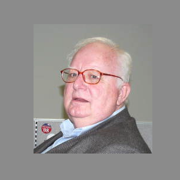Opinion
Bill Cotterell: Believe it or not, some topics are still private
We’ve grown used to full disclosure – even too much information – from political candidates, our Capitol Columnist writes.

Republican presidential candidate and Florida Gov. Ron DeSantis carries his daughter Madison while walking through the Iowa State Fair on August 12, 2023 in Des Moines, Iowa. Photo by Brandon Bell/Getty Images
For a while, one of the top-trending stories galloping around the internet concerned Gov. Ron DeSantis refusing to say what he and wife Casey would do if one of their children someday comes out as gender-nonconforming.
Good for DeSantis. Some things are private, even for political candidates.
There was no great public clamor to know what he thinks about this topic. The question was just asked in hope of a news-making reply.
Anyone who’s followed the Republican race, or read about the Florida governor’s “war on woke,” already knows what DeSantis thinks on a wide range of matters, from abortion to drag queens. Agree or not, public policy affecting more than 20 million Floridians is not the same as matters within his household.
Molly Ball of TIME got a sit-down with DeSantis and asked what he’d do if one of his kids, several years from now, decides not to live in the gender to which they were born.
“Well, my children are my children,” he said. “We’ll leave that — we’ll leave that between my wife and I.”
He should have said “my wife and me,” not “I.” But everything else in his answer was factually correct, if a bit politically startling.
We’ve grown used to full disclosure, even too much information, from candidates. About 30 years ago, MTV was asking presidential candidates whether their undershorts were “boxers or briefs.”
Remember that the press agreed not to take pictures of Franklin Roosevelt in his wheelchair, agreeing that polio didn’t affect his governing ability. Yet, a mere 30 years later, the White House was giving updates on Jimmy Carter’s hemorrhoid surgery. And Bill Clinton … oh, pick anything.
Sometimes, public reaction to private information depends on the candidate, and what we expect from them. Disclosure of Clinton’s draft evasion and what he termed “causing pain in my marriage” almost sank his 1992 campaign.
But Donald Trump escapes unscathed — and even benefits — from personal and political peccadillos, as if that’s what fans expected of him.
When Carter admitted “lust in my heart,” people were titillated not because it was unusual for men to ogle women in 1976 but because Carter was such a pious guy.
Very few fought back. When reporters prefaced an inquiry with, “If you don’t mind a personal question…,” Rosalynn Carter would smile and say, “If you don’t mind not getting an answer” in a soft Georgia drawl that took the edge off being told, “Watch yourself, buddy.”
Another Georgian, Newt Gingrich, shut down the MTV interviewer who asked about “boxers or briefs,” saying that was the kind of stupid question that gives the press a bad name.
And personal tastes change over time. In 1972, it was considered rude to ask a woman her age. The late U.S. Sen. Paula Hawkins ran for the Public Service Commission, an elected body back then, and would say, “I’m old enough to be on the PSC.”
Of course, that made her age a quest for the press, until somebody thought to check her driving record or voter registration down in Maitland. News that Hawkins was 44 was a real scoop for a day or so.
But there are times when a leader’s personal beliefs are fair game.
Gov. Reubin Askew was a teetotaler who refused to serve alcohol in the governor’s mansion. In 1971, he had a chance to award hundreds of liquor licenses, based on population growth, but decided not to. He reasoned that the law allowed – but didn’t require — him to issue new licenses, and he didn’t think anybody suffered excessive sobriety for lack of new bars.
Sure, more liquor stores meant more revenue for the state. But Askew reasoned that they also meant more social problems.
Was he imposing his own moral strictures on hard-partying spring breakers – or simply deciding “when to say when” in government regulation?
Askew also vetoed the state’s first no-fault divorce law, then accepted a slightly amended compromise. Did he think the first bill would make Florida a Nevada-style “divorce mill,” as he put it, or was Askew pushing his own strait-laced moral values on everybody?
And was DeSantis writing his Catholicism into Florida law when he signed the six-week abortion law? Was Gov. Bob Martinez trying to, when he called a special legislative session on abortion in 1989? Both men are known as conservative pro-life Republicans, so no one was surprised.
Voters need to know how DeSantis makes public policy and how he uses the power and property of the state. How he deals with his children is between him and his wife, unless one of those pre-kindergartners starts negotiating lucrative financial deals in Ukraine or China, like some presidential offspring we won’t mention.
Bill Cotterell is a retired Capitol reporter for United Press International and the Tallahassee Democrat. He can be reached at bcotterell@cityandstatefl.com.
NEXT STORY: Bill Cotterell: Firing prosecutors is bad policy and bad politics
